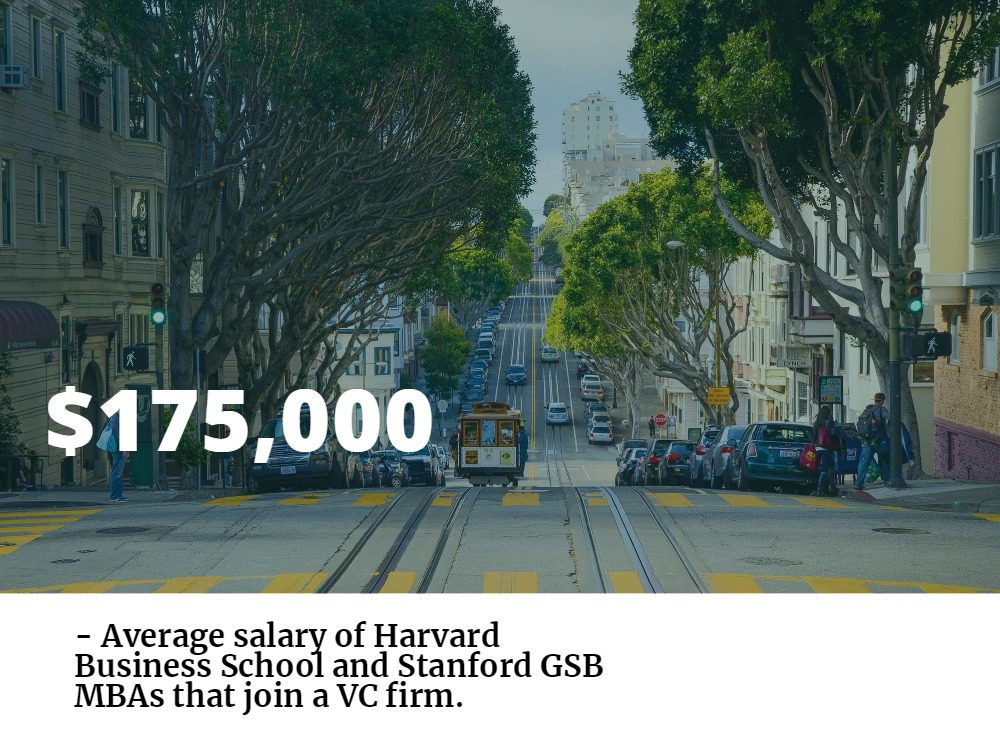Hot MBA Jobs: Venture Capital Associate

If you’ve ever used an app like Uber or Snapchat, odds are you’ve benefited from the work of a venture capital associate. Through skills like financial modeling, evaluations, and a little bit of luck, venture capital associates find ‘the next big thing’ and provide the money to make it happen. And though not all of these skills can be taught, top venture capital firms are looking to business programs to find the perfect candidate.
For students looking to join the venture capital industry, the path isn’t always an easy one. The level of experience required in the field means that very few students find venture capital associate positions straight out of their MBA programs. This doesn’t seem to deter those who are ready to work for it, however. Last year, private equity was ranked as the second-biggest employer for MBA graduates at the Harvard Business School.
Before you get started on the road to becoming a venture capital associate, let’s take a look at what the path to your dream job might look like.
The Venture Capitalist Job Role
Venture capital (VC) firms take on the risky but often lucrative job of searching the startup world for the next big thing. In exchange for providing capital infusions to startup companies in the early stages of their business, venture capitalists receive both oversight and ownership in the company.
For associates at venture capital firms, the job primarily involves sourcing new deals—setting up meetings with entrepreneurs and companies to find prospective investments—and supporting existing ones. As most roles in financial analysis go, VC associates are responsible for supporting all aspects of an investment, from the initial sourcing, modeling, and execution of a deal.
The exact type of work done by a VC associate may be determined by the type of for it is. For firms more focused on funding startups in their early stages, the associates work may be more concentrated on sourcing, while firms working more on late-stage financing will likely require more diligence and modeling from its associates.
Venture Capitalist Salary
While the exact roles of a venture capital associate may vary widely with the firm and its specialization, the general trend shows VC work to be an incredibly lucrative career. In 2016, graduates from top MBA programs like Stanford GSB and Harvard Business School joined VC firms at an average salary of $175,000.
According to Payscale, the average salary across all education levels for an associate at a venture capital firm is $92,067. The level of experience can make a big difference when it comes to the venture capital associate role, as well. Mid-career professionals in this role make on average 24 percent more than the national average, and experienced professionals up to 51 percent more.

Where Do Venture Capital Associates Work?
Venture capital firms can be found throughout the world in a variety of fields, leaving a wide range of opportunities open to up and coming VC associates. Certainly, studying and working near concentrated start up hubs like the Silicon Valley in California or the UK’s Silicon Fen can help boost an MBAs ability to get their foot in the door.
Still, a quick look at open venture capital associate positions open at the time of writing reveal diverse offerings spread throughout the country, from Palo Alto, CA to Philadelphia, PA to Durham, NC. MBAs looking to pursue a role in venture capitalism may also look for roles that allow them to pursue other areas of business they are passionate about, since VC firms are typically specialized in the type of startup they will invest in, be it fintech, health science, and other various fields.
Some of the world’s top corporations also have venture capital firms that will invest in companies related to their work. This includes companies like Google, Intel, Salesforce, Johnson & Johnson, and more.
The Venture Capital Associate Education
VC firms looking for associates are likely looking for MBAs who have had some previous experience on the workforce. While it’s not impossible for those without MBA degrees to begin as associates, opportunities for advancement to a partner level role are typically unusual without one. Typically, pre-MBA associates are expected to only work two to three years at a firm and then move on.
For post-MBA associates, it’s expected that these individuals will be working towards a partner level position. Firms will be looking for candidates with strong records in analysis who can demonstrate a deep understanding of markets and industries. Given that even MBA graduates will be expected to have a certain level of experience before joining a VC firm, these roles can be incredibly competitive. On-campus recruiting is uncommon for these firms, and typically only graduates from top level MBA programs are recruited to these positions. Basically, if you are determined to enter the venture capital industry, you will not only need an MBA education- you will need to prove you have the best MBA education.
The Top VC MBA Programs
To join the incredibly competitive field of Venture Capitalism, MBA graduates need a demonstrated record of financial analysis skills and a degree with the reputation to back it up. Some of the top schools for those looking to enter the VC or private equity fields overlap with some of the highest ranked MBA programs in the world. Schools that have strong relationships with investment banks and those with strong finance programs will likely offer the most opportunities for students looking for careers as VC associates. Some of the top schools for the field are listed below:
- Booth School of Business – University of Chicago: The full-time MBA program at University of Chicago’s Booth School of Business has a strong focus on venture capital and private equity through the Polsky Center for Entrepreneurship. The program provides strong networking opportunities for their MBAs through student organizations like the Entrepreneurship and Venture Capital (EVP) Group. The group offers career development, networking, activities, and speakers covering the most important topics in venture capital today.
- Kellogg School of Management – Northwestern University: MBA students at the Kellogg School of Management will find a huge focus on venture capitalism through the school’s Heizer Center for Private Equity and Venture Capital. Part of the center is the school’s Venture Lab, an experiential learning course that allows students hands-on experience with a quarter-long internship at venture funds, incubators or start-ups.
- Harvard Business School: The top-ranked Harvard Business School has one of the highest success rates in the world for students interested in venture capitalism. In 2015, roughly 14 percent of HBS graduates went into positions at private equity or venture capital firms. Organizations like the Venture Capital & Private Equity Club– which provides a speaker series, career treks, and an annual conference—allows students to get acquainted with the industry long before graduation.
